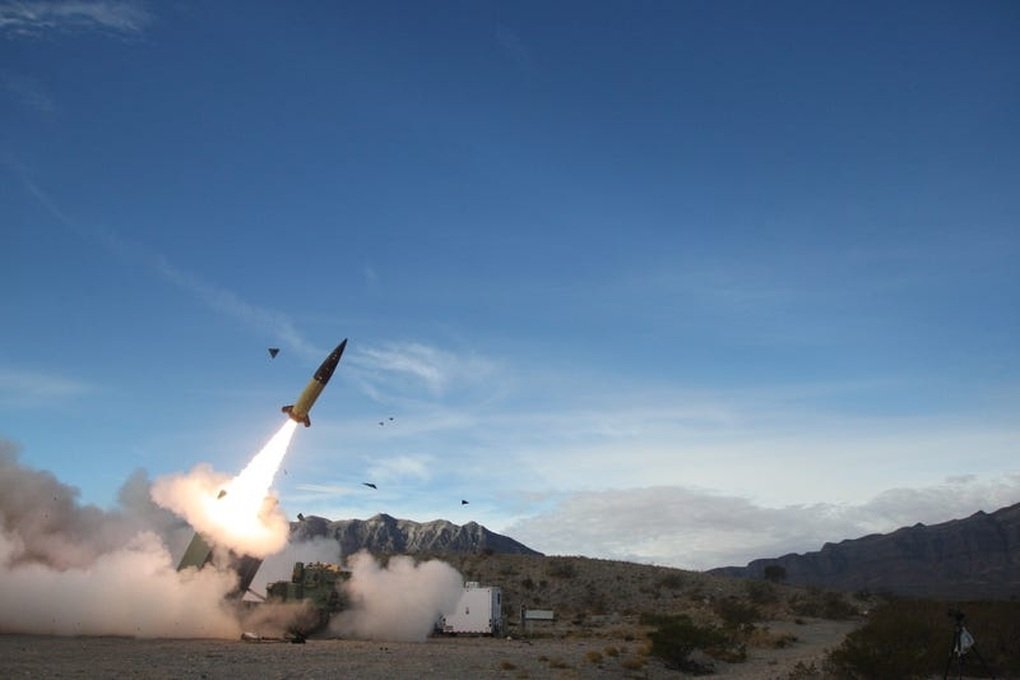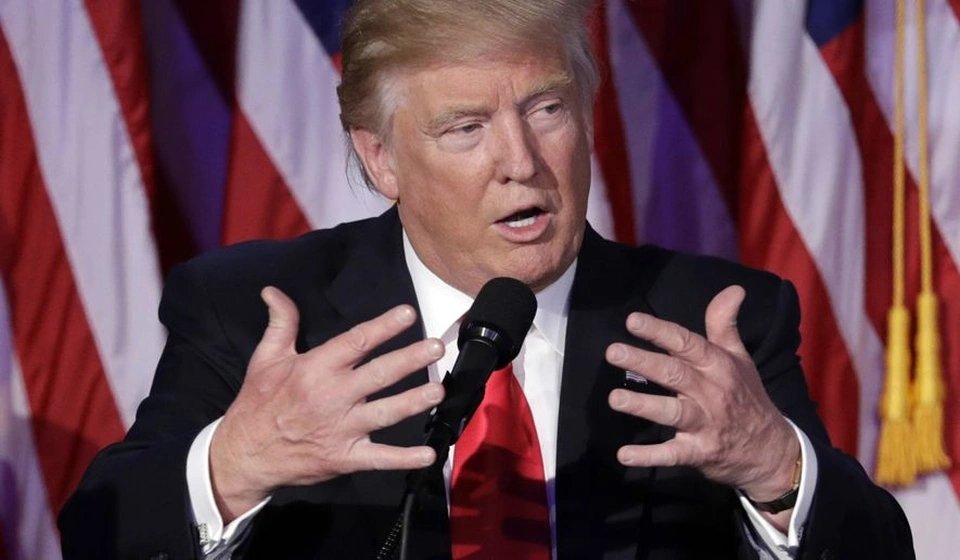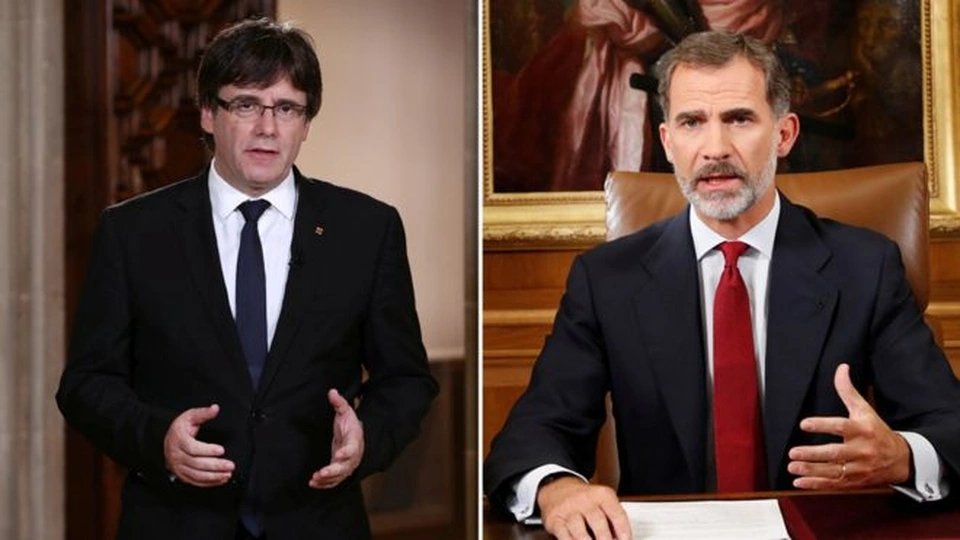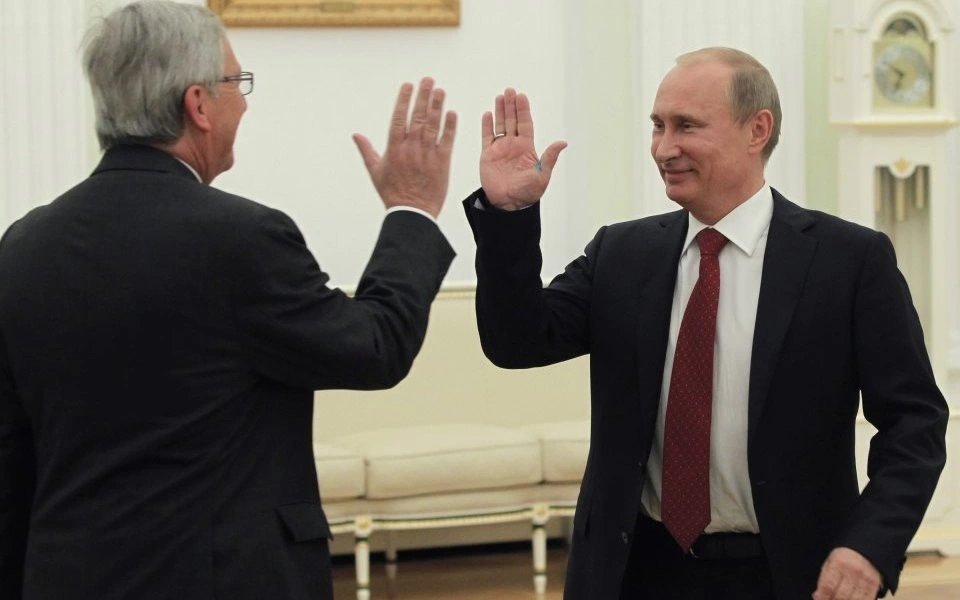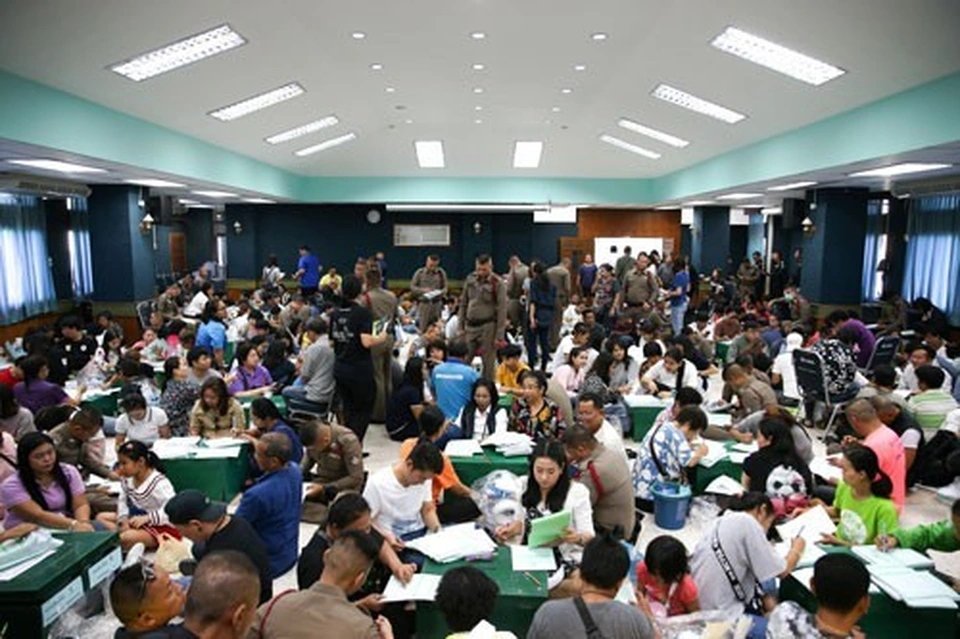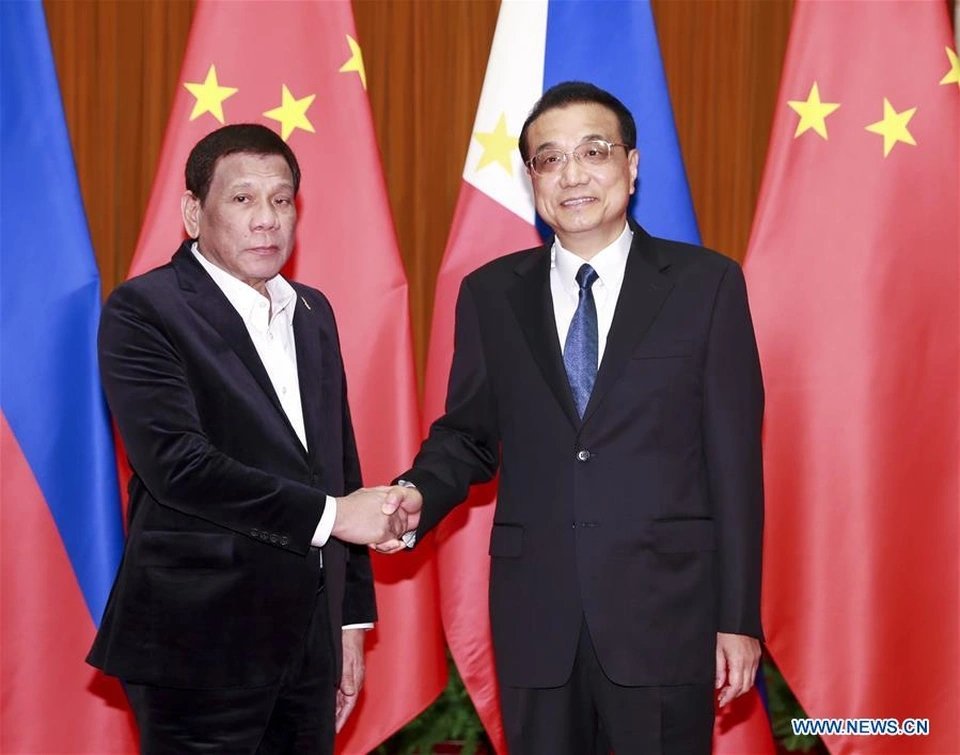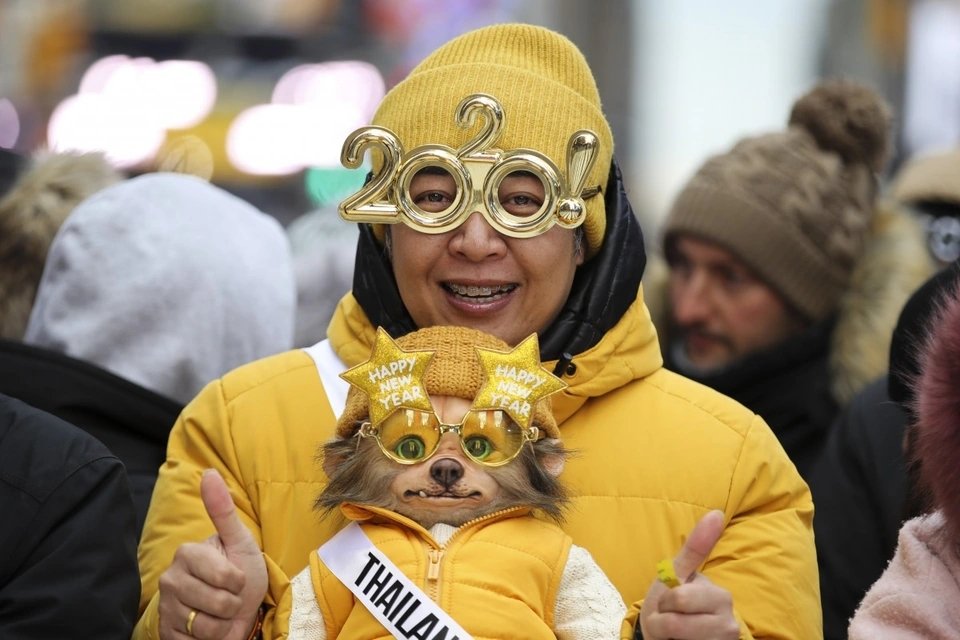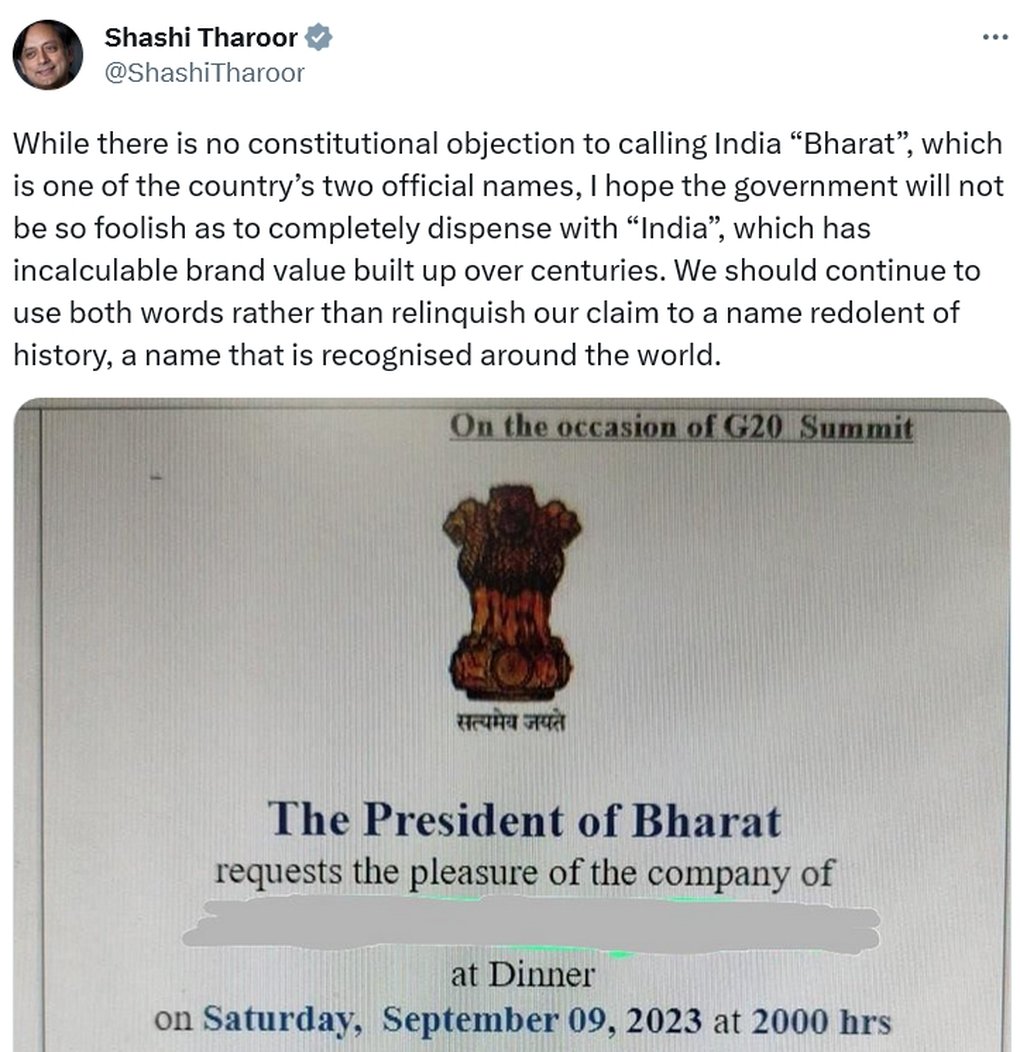
(Dan Tri) – Indian President Droupadi Murmu calling himself `President Bharat` in a dinner invitation on the sidelines of the G20 summit has sparked speculation that the government may be about to change the country’s name.
The decision to replace India’s English name with an ancient Sanskrit name in the invitation to a G20 dinner recently sparked heated debate.
Indian people, from opposition parliamentarians to ordinary people, are also paying attention to developments surrounding the possibility of changing the country’s name.
What is so controversial about India’s name?
The invitation to the dinner party on the sidelines of the G20 sparked controversy (Photo: X/Shashi Tharoor).
It is customary for invitations from public bodies specified in the Indian Constitution to always use the English name of India (`India`) when the document is in English.
However, the English-language invitation to the dinner on the sidelines of the G20 referred to Ms. Murmu as President of Bharat.
When asked by Reuters, an official at the Indian President’s Office said they did not want to comment on the issue.
Faced with the incident, some people expressed dissatisfaction and said that Prime Minister Narendra Modi’s government was pushing to officially change the country’s name.
What is the official name of India?
India officially has 2 names.
The preamble of the English version of the Indian Constitution begins with the words `We, the people of India…`.
In the Hindi version, the country’s constitution replaces the entire name `India` with `Bharat`, except for the part identifying the country’s name.
The name Bharat also appears widely on national symbols and coats of arms, from passports to cash.
Changing India’s name to simply `Bharat` would require a constitutional amendment and approval by a two-thirds majority in both houses of Congress.
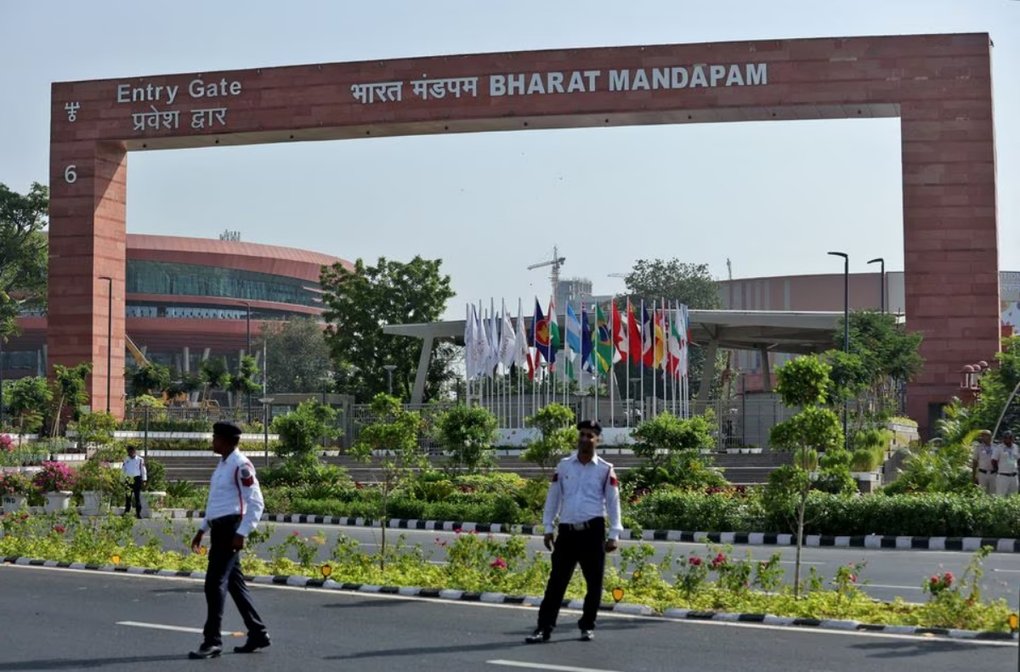
Police stand on the road outside `Bharat Mandapam`, the main venue of the G20 summit in New Delhi, India on September 3 (Photo: Bloomberg).
Will the Indian government change the name?
The above conjectures appeared just a few days after the current government announced that the National Assembly would hold a special extraordinary session on September 18-22, but did not disclose the session’s agenda.
This move continues to raise unconfirmed speculation that the name change could be discussed and approved in the upcoming extraordinary session.
Currently, no one has confirmed the possibility of a name change.
Reasons why the government might want to change the name?
Since being elected in 2014, Prime Minister Modi and his government have worked to erase some names or other elements that could recall colonial rule or the Mughal Empire.
For example, in 2015, New Delhi’s famous Aurangzeb Road, named after a Mughal king, was changed to Dr APJ Abdul Kalam Road after protests from Modi’s party leaders.
According to Al Jazeera, the debate over `India` or `Bharat` has arisen since opposition parties announced a new alliance in July – called the Indian National Comprehensive Development Alliance, with
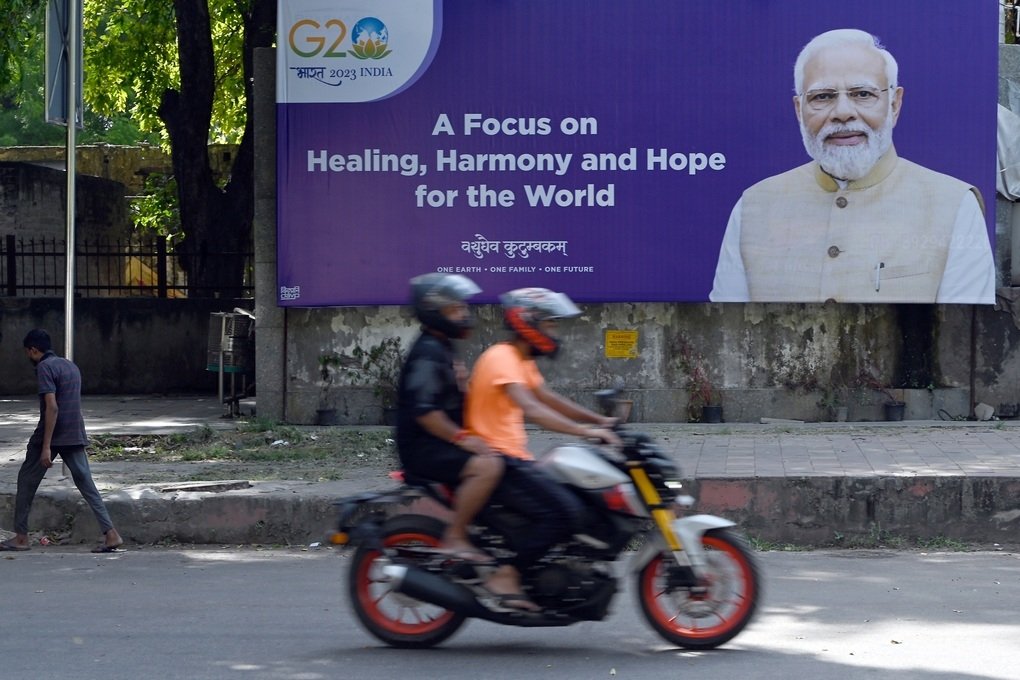
Posters and signs promoting the G20 (Photo: Bloomberg).
`When someone’s name is Gopal, do we tell people who only know English that his name is a cowherd? No,` the Hindu newspaper quoted Mr. Mohan Bhagwat, head of the Hindu nationalist organization.
`Gopal is a special name and it will remain Gopal no matter where he goes. The same goes for our Bharat,` Mr. Bhagwat affirmed on September 3.
What is the history of the two names?
Both names have existed for more than 2 millennia.
Some proponents of the name Bharat claim that India’s English name was given to it by British colonialists, but historians say the name predates the colonial period by centuries.
According to Bloomberg, the name `India` in English for India comes from the word `Sindhu` which means `river` in Sanskrit.
The name Bharat is even older.
According to some experts, the name Bharat is used as a term of socio-cultural identity rather than a geographical term.

